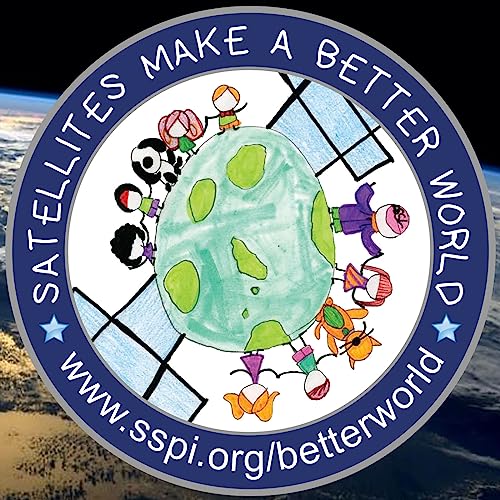In this Better Satellite World podcast series, we ask the question: “What would you do if you had the power to make the world a better place during your career?” Joining SSPI’s Lou Zacharilla to answer that question in the seventh and final episode are 3 members of the “20 Under 35” cohort of 2023: Andrew Chau, Space Mission Program Manager at Millennium Space Systems (A Boeing Company), Bhavi Jagatia, Astrodynamics Engineer at Planet and Matej Poliacek, ISS Flight Operations Engineer & STRATOS Flight Control Team Deputy Lead at DLR – German Aerospace Centre.
Andrew Chau is a Space Mission Program Manager for Millennium Space Systems, A Boeing Company, in El Segundo, California. In his current role, he leads Victus Nox, a tactically responsive space program for the U.S. Space Force Space Systems Command Space Safari Office. The program, which demonstrates how fast we can respond to on-orbit needs, is critical for national security space. Most notably, the program required a high-performance small satellite to be completed in a mere eight months from contract authorization; a 60-hour activation phase; a 24-hour launch phase; and mission operations-ready in 48 hours after launch. Under Andrew’s leadership, the team met or exceeded these ambitious goals – eight months for satellite completion, 58 hours for activation, 24 hours for launch and 37 hours for mission operations. These goals can take years to complete, and yet, the team completed everything in under a year. Prior to VICTUS NOX, Andrew served as program manager for a high-rate production study and was the project manager for Millennium Space’s micro control-moment gyroscope. He also worked as an electromechanical design engineer.
Bhavi Jagatia is an Astrodynamics Engineer at Planet, a position she took on after completing a successful internship for the Orbits R&D team. While at Planet, she has made significant improvements to the tasking system for the company’s high-resolution constellation of imaging satellites, SkySats. Bhavi was initially tasked with evaluating the complex schedule for SkySats, identifying areas of improvement and implementing changes to increase the collection capacity of the fleet. Her work resulted in substantial fulfillment enhancements, and she is now the sole owner and developer of the tool for her team. Bhavi received her Bachelors of Science in Mechanical Engineering from Cornell University, which she attended on the prestigious Tata scholarship. During her studies at Cornell, she worked with the NASA Jet Propulsion Laboratory (JPL) on a project to investigate the use of flux-pinning on orbiting sample capture for a Mars sample return mission. Bhavi served as avionics lead for the project and participated in a microgravity test aboard a Zero-G flight with the JPL team. She also led Cornell’s project team for NASA’s Micro-G NExT competition while completing her studies and worked in internships at Boeing’s research lab, ASML, and Honda Aircraft Company.
Matej Poliacek is a Flight Operations Engineer and Deputy Team Lead of the STRATOS Flight Control Team for the Columbus module of the International Space Station (ISS) at the German Aerospace Centre (DLR). In this role, he supports the astronaut crew onboard by monitoring and operating the systems and payloads in the module, ensuring crew safety, smooth running of the station and supporting scientific activities. Matej also took part in the recent European Space Agency (ESA) astronaut selection, and although he did not reach the final stages, he was among the top 5% selection from the 22,500 applicants Europe-wide. He is currently the first and only known Slovak citizen to directly work on the ISS project. In 2023, Matej and his team conducted a hardware upgrade on the ISS from the ground alongside astronauts who were performing the on-board activities. The project, which involved replacing Columbus LAN switches, took several years of preparation, including writing and updating procedures, outlining choreography for the crew and coordination with NASA counterparts and European payload operators to facilitate the transition to new hardware with minimal impact on daily ISS operations. It took 2 full weeks of console work to complete, during which Matej supported the crew with ground commanding to properly configure the module both before and after the hardware transition, provided the crew with guidance for their on-board actions and checked out and integrated the hardware into station operations.
 51 m
51 m Jul 12 202426 m
Jul 12 202426 m Jul 4 20241 h y 1 m
Jul 4 20241 h y 1 m 32 m
32 m 44 m
44 m Jun 14 202444 m
Jun 14 202444 m Jun 7 202450 m
Jun 7 202450 m 41 m
41 m
